Photography and Photographers
Camera Hat
John L. Johnson of Pinehurst, Washington obtained a patent for his "camera support" in 1945. Patent No. 2,369,829. The support provided a way to conceal a camera inside a hat.I wonder if the patent illustration was a self-portrait.

Posted By: Alex - Sun Apr 05, 2020 -
Comments (2)
Category: Inventions, Patents, Photography and Photographers, 1940s
Harmless Hunter
In 2012, the brothers Randy and Michael Gregg tried to raise money to produce their 'harmless hunter' or 'kill shot' gun. Though it wasn't actually a gun. It was a camera shaped like a gun. From their Kickstarter page:They never succeeded in raising enough money. Apparently the idea appealed neither to hunters nor to wildlife photographers.

Posted By: Alex - Fri Jan 17, 2020 -
Comments (1)
Category: Guns, Inventions, Photography and Photographers
The $4 million Photo
It actually sold for more than $4 million — $4,338,500, to be exact. It was taken by Andreas Gursky who titled it “Rhine II” because it shows a scene along the Rhine River. Its sale in 2011 made it (at the time) the most expensive photo in the world.The pricetag astounded many people, since it kinda looks like a photo any amateur could and would take. Florence Waters, art critic for the Daily Telegraph, offered this defense of it:
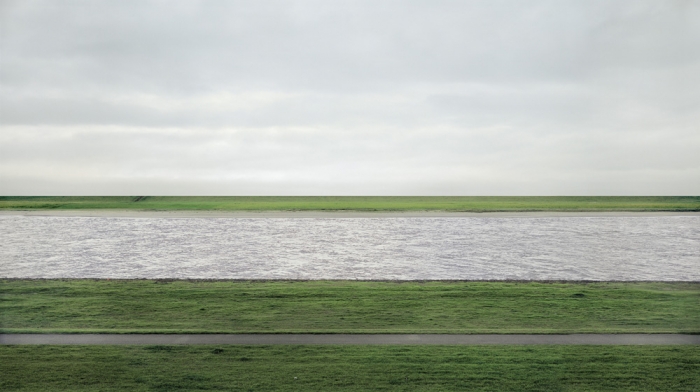
Posted By: Alex - Sun Nov 03, 2019 -
Comments (2)
Category: Overpriced Merchandise, Photography and Photographers
The Photography of Bill Wood
Note: It was recently brought to our attention, by a kind and attentive reader, that in our original post (way back in 2008) we referred to the photographer as Bill Woods. His actual name was Bill Wood.Bill Wood was a commercial photographer in Fort Worth, Texas. He worked from 1937 to the early 1970s. Apparently, he was a no-nonsense photographer. He didn't intend to produce weird images, but his subject matter — middle-class America — meant that many of his images do have a surreal quality to them, like something out of a David Lynch movie.
The New York Times notes: "What is captivating and often funny is the gap between what he evidently meant to do and what he did. It appears that he meant to create reassuring images for his customers, pictures that affirmed their identities, values and world. Today, however, it looks more as if he captured feelings of absurdity, unease, alienation and grief."
His pictures include a bizarre car promotion, promising a year's supply of Kleenex with every purchase of a 1959 Pontiac. Would this have been a tempting deal, even back in 1959? How much Kleenex could a person possibly use?

...a man standing outside a store with an open sign. But what does it sell? There don't seem to be any products inside.

...and the fashionable members of the Lions Club basketball team.

The International Center of Photography, which recently hosted an exhibition of his work, has more of his images on their site. There's also a book of his photographs.

Posted By: Alex - Sun Jun 23, 2019 -
Comments (7)
Category: Photography and Photographers
Lennette Newell’s Ani-Human Photos
Her home page.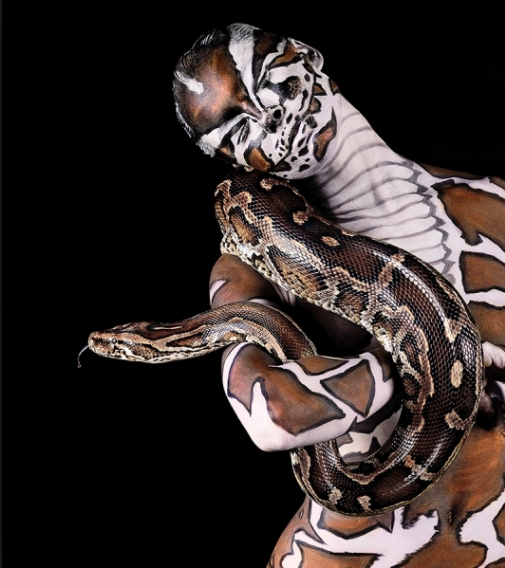
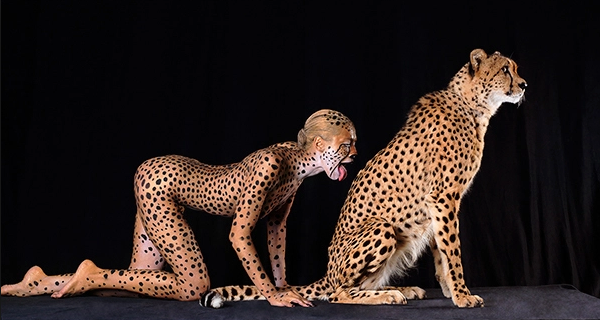
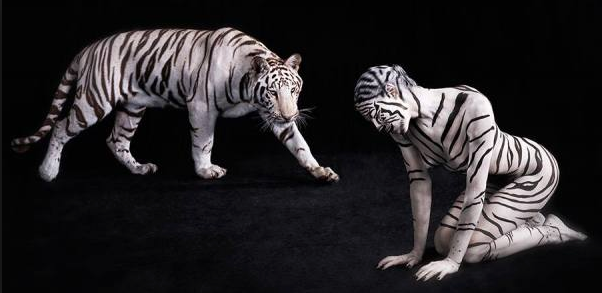
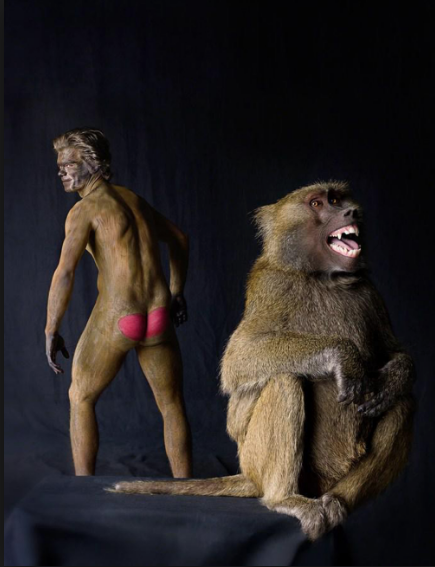
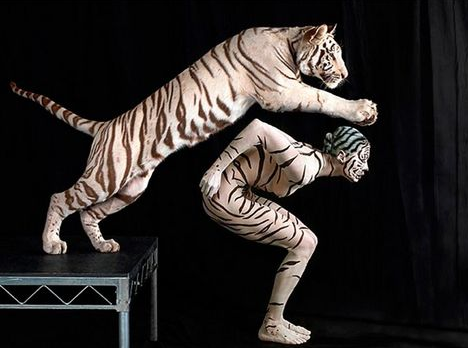
Posted By: Paul - Wed Jun 12, 2019 -
Comments (2)
Category: Animals, Photography and Photographers, Body Painting
Anti-Selfies
Artist Stephanie Leigh takes “anti-selfies.” This involves pretending to be dead in front of tourist attractions around the world. She posts the resulting photos on Instagram, under the username STEFDIES. She explains:More info: thisisinsider.com
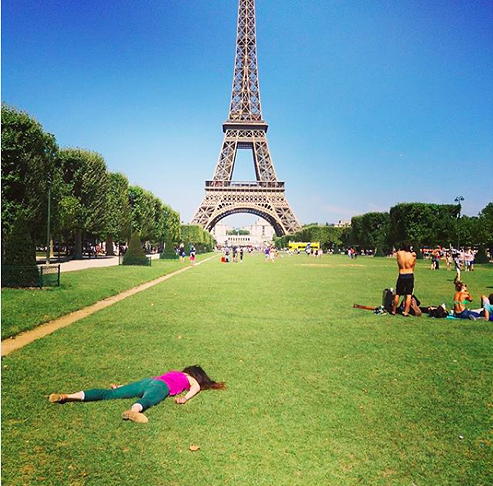
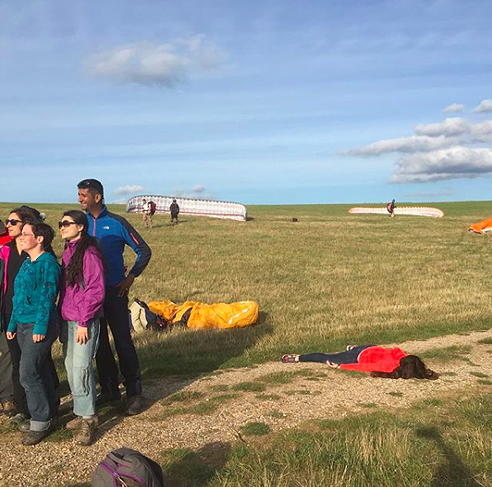
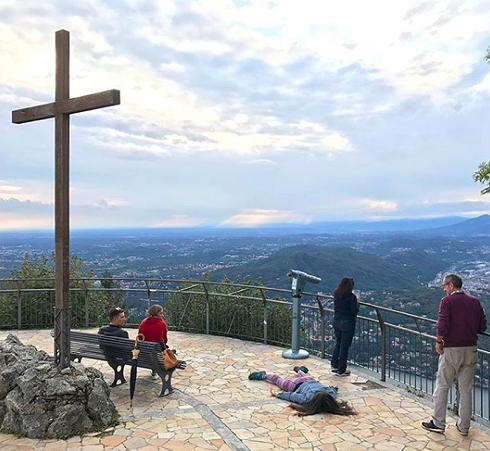
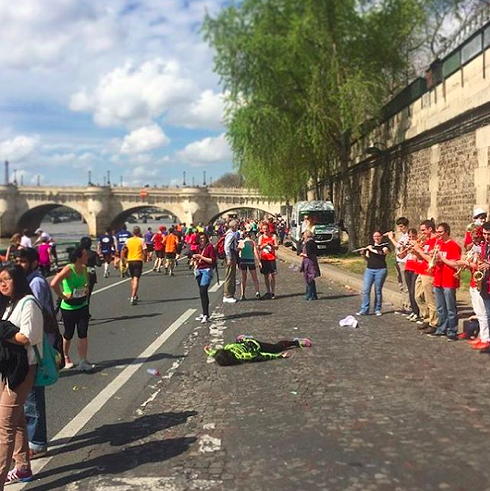
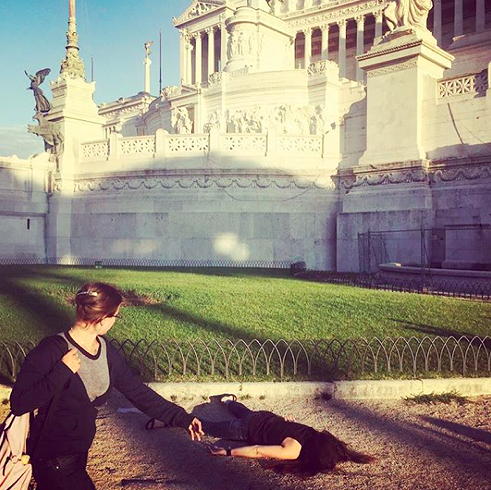
Posted By: Alex - Tue Apr 30, 2019 -
Comments (1)
Category: Death, Photography and Photographers
Ted Serios and his Thoughtographs
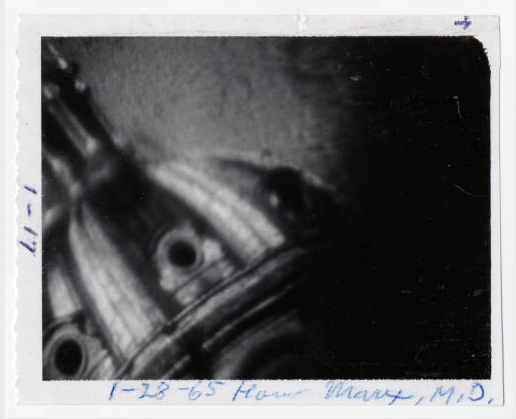
Theodore Judd Serios (1918-2006), a bellhop from Chicago who appeared to possess a genuinely uncanny ability. By holding a Polaroid camera and focusing on the lens very intently, he was able to produce dreamlike pictures of his thoughts on the film; he referred to these images as "thoughtographs..."
Full article here.
Collection of thoughtographs here.
Wikipedia page here.
Posted By: Paul - Wed Feb 28, 2018 -
Comments (4)
Category: Eccentrics, Freaks, Oddities, Quirks of Nature, Photography and Photographers, Unsolved Mysteries, 1960s
Messy Girls Gift Book
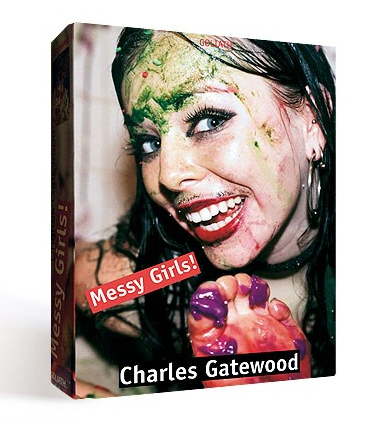
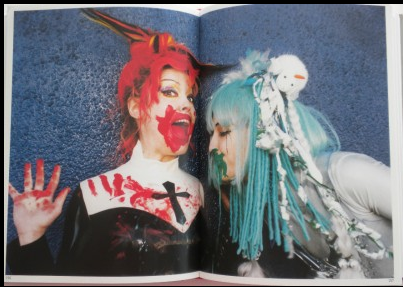
With Xmas just around the bend, the search for presents intensifies. Who wouldn't like a book of photos of women covered in foodstuffs?
More pix here at eBay for as long as the auction is up.
Posted By: Paul - Tue Nov 21, 2017 -
Comments (3)
Category: Art, Beauty, Ugliness and Other Aesthetic Issues, Food, Hygiene, Misbehavior, Rebellion, Acting-out and General Naughtiness, Photography and Photographers, Fetishes, Women, Body Painting
Photographer Leslie Jones
Leslie Jones (1886-1967) seems to have had a quirky sense of humor. I like his series of shots titled "Odd Fences."You can see more at this link.
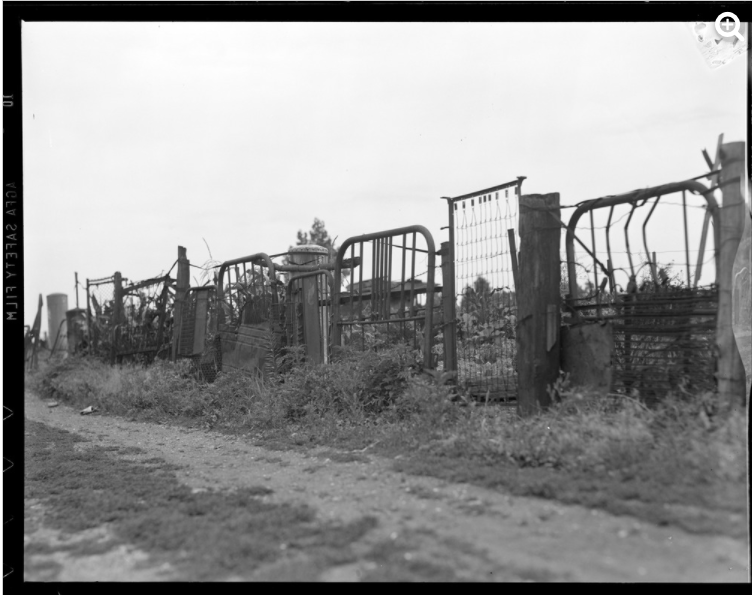
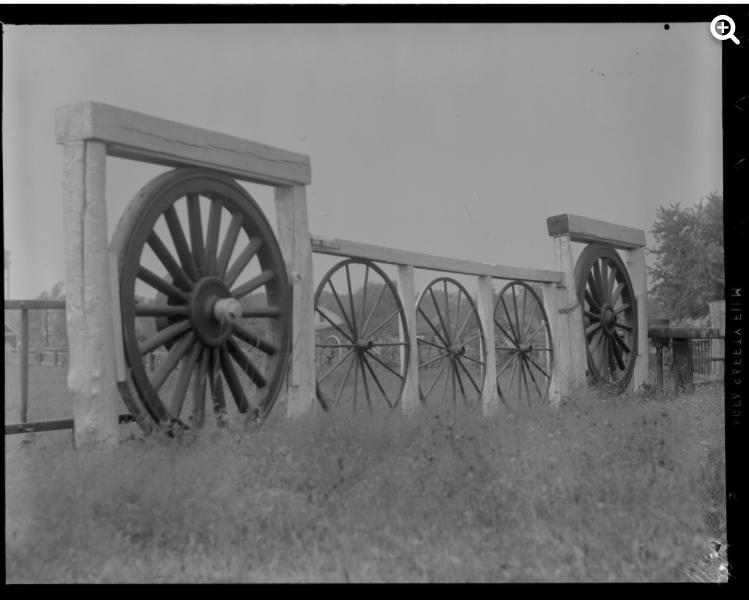
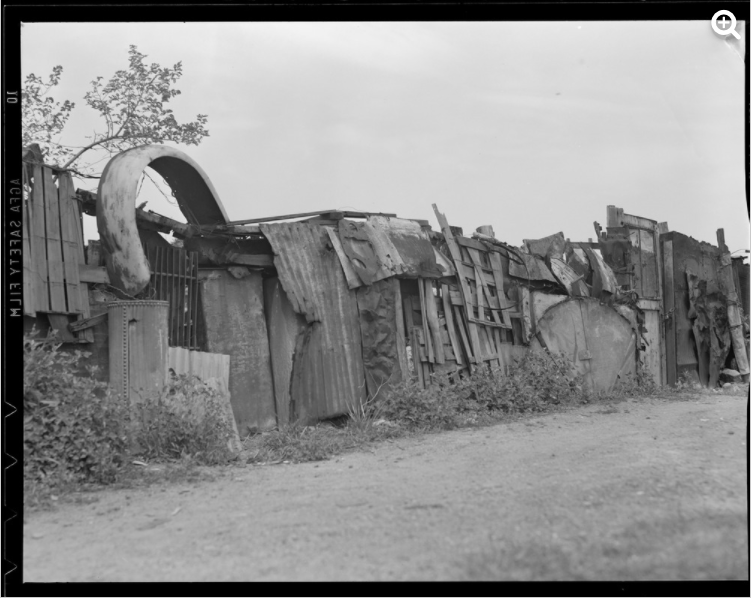
Posted By: Paul - Fri Nov 10, 2017 -
Comments (1)
Category: Architecture, Eccentrics, Photography and Photographers, Regionalism, Twentieth Century
The Art of Hayley Newman
Below are some of the captioned images that artist Hayley Newman displayed at her first solo show, "Connotations - Performance Images 1994-98".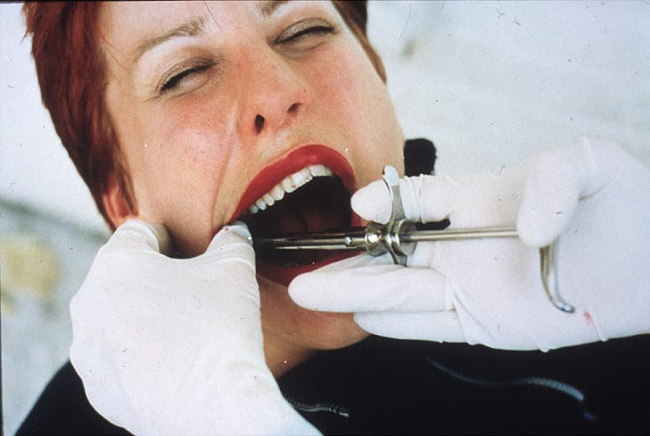
Lock-jaw Lecture Series (1997/1998)
"Over the period of a year I was invited to give a series of lectures on my work. Before each lecture I visited a local dentist and had my mouth anaesthetised. With my mouth made immobile, I gave my feeblest apologies to the students and staff before attempting to talk on my work."
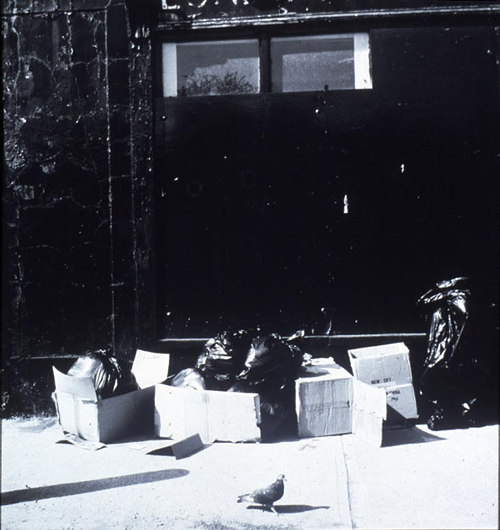
B(in) (1996)
"Sitting in a bin bag waiting for bin men to pick me up in New York. When the bin men arrived at 4pm, I jumped out of the bag and ran home."
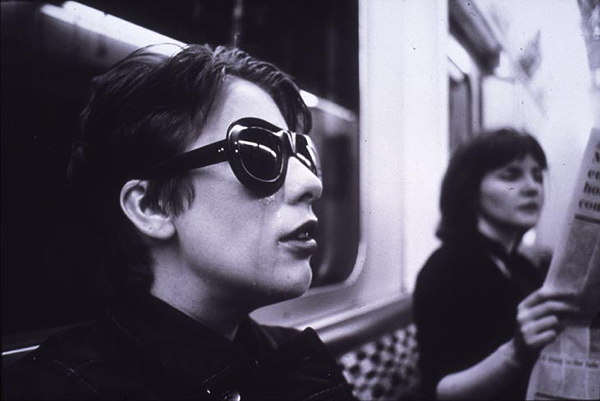
Crying Glasses (An Aid to Melancholia) - (1995)
"Over a year I wore the crying glasses while travelling on public transport in all the cities I visited. The glasses functioned using a pump system which, hidden inside my jacket allowed me to pump water up out of the glasses and produced a trickle of tears down my cheeks. The glasses were conceived as a tool to enable the representation of feelings in public spaces. Over the months of wearing the glasses they became an external mechanism which enabled the manifestation of internal and unidentifiable emotions."
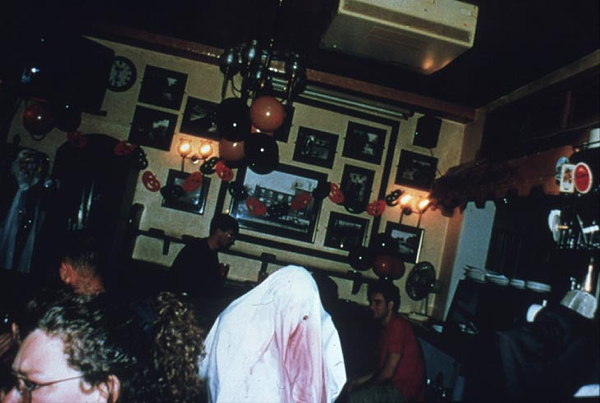
Spirit (1995)
"Soho, London: Dressed as a ghost for Halloween I ran into various pubs in London's Soho, stole a drink and then left."
Here's the punchline, which Newman revealed if you read the fine print in the exhibit guide:
Image sources: Lock-jaw, Crying Glasses, B(in), Spirit
Posted By: Alex - Fri Jun 09, 2017 -
Comments (3)
Category: Art, Photography and Photographers, 1990s

| Who We Are |
|---|
| Alex Boese Alex is the creator and curator of the Museum of Hoaxes. He's also the author of various weird, non-fiction, science-themed books such as Elephants on Acid and Psychedelic Apes. Paul Di Filippo Paul has been paid to put weird ideas into fictional form for over thirty years, in his career as a noted science fiction writer. He has recently begun blogging on many curious topics with three fellow writers at The Inferior 4+1. Contact Us |




